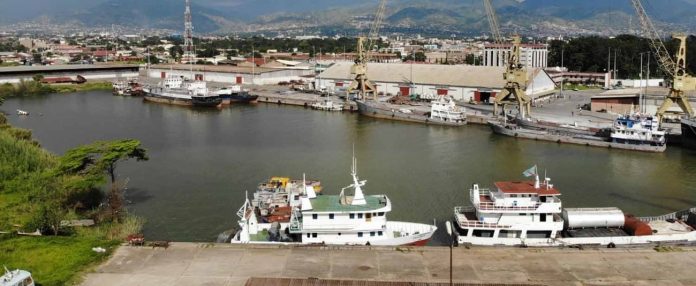Burundian Minister of Trade, Transport, Industry and Tourism, the European Union’s ambassador and the African Development Bank’s Country Manager, launch €79m project.
Renovations of the Port of Bujumbra are underway as the first phase of the Lake Tanganyika Transport Corridor Development Project – a programme to begin to harness the lake as a navigable inland waterway.
The works involve acquiring equipment for port operations, developing access roads and building staff capacity to manage the port. The project will support regional trade by simplifying port activities with the ultimate objective of transforming the port into a hub linking the main road corridors from the north, centre and south of the country.
The renovation will also support better regional connectivity and strengthen regional trade with the countries that border Lake Tanganyika.
EU Ambassador Bochu underlined the strategic role of the Port of Bujumbura as a crossroads for the region’s corridors, saying “The European Union is proud to contribute to a project that will improve both port and road infrastructure. It is committed to helping Burundi to develop robust, efficient infrastructure, with well-trained port staff and an appropriate port management system to reduce the time and cost of port operations, but also to be able to attract more private investors into maritime transport.”
The AfDB country manager, Pascal Yembiline, added “The cost reductions generated by renovating the port will support the Burundian economy, especially agriculture and transport services. That, in turn, will have a beneficial effect on economic growth and people’s living conditions. The Bank Group would like to express its gratitude to the government of Burundi and the European Union for their cooperation, which has resulted in funding for a project that is essential both for the country and for regional integration.”


















